Prof. Dr. ir. MH (Marcel) Zwietering Wageningen University and Research
Work Package 1 Leader

Marcel Zwietering is professor in Food Microbiology at Wageningen University. His research focusses on quantitative microbiology, risk assessment, microbiological criteria and food safety management. He has published over 200 paper. He is editor of the International Journal of Food Microbiology and member of the editorial board of the Journal of Food Protection. At IAFP2019 he was awarded the Elmer Marth Educator Award and the International Leadership Award. He is member of the International Commission on Microbiological Specifications for Foods (ICMSF) and was elected chair in 2020. He teaches in courses from basic Food Microbiology BSc courses, to specialised MSc and PhD courses like Advanced Food Microbiology, Food Safety Risk Assessment and Food Safety Management. He is also involved in an on-line distance BSc course and MSc course and has together with the Toxicology section developed a Food Safety MOOC with a large international audience.
Dr. Sara Bover i Cid
Work Package 2 Leader
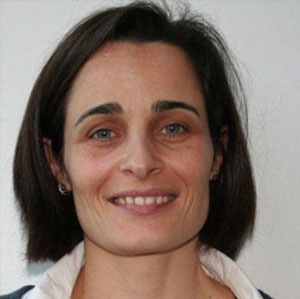
PhD in Pharmacy by the University of Barcelona (UB). Currently, she is the Head of the Food Safety and Functionality Program at the Institute of Agriculture and Food Research and Technology (IRTA) in Monells (Girona). Her research activity focuses on improving the food safety through processing and preservation technologies; particularly in the study and modelling of bacterial behaviour for its application in the microbiological risk assessment and management, leading and participating in national and international research projects. Regularly, she contributes as organizer, speaker or teacher in workshops, seminars and undergraduate and postgraduate university courses. Co-author of more than 75 scientific publications, as well as technical articles and book chapters. She is a member of the editorial committee of the International Journal of Food Microbiology and Secretary of the Executive Board of the International Committee of Food Microbiology and Hygiene (ICFMH). She is a member of the BIOHAZ Panel of the European Food Safety Authority (EFSA).
Bart van der Burg
Work Package 3 Leader

Director of Innovation, BioDetection Systems (BDS) BV, Amsterdam
Activities performed at BDS: To protect the safety and the quality of our food, health and environment by offering innovative, sensitive and efficient in vitro test methods - that is what BioDetection Systems stands for.
To this end, BDS develops tests that quantify biological effects of the compounds and mixtures we are confronted with in our everyday life. In combination with the chemical analytical, and DNA-based techniques, BDS CALUX® bioassays enable a wide range of applications, such as compliance testing, safety assessments, and biological effect profiling.
Prof. Kalliopi Rantsiou
Work Package 4 Leader
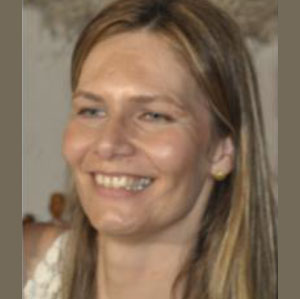
Kalliopi Rantsiou graduated from the University of Athens in Greece in 1997 with a degree in Biology and continued her education at the University of Davis, USA obtaining a PhD in Food Science in 2002. She then returned to Greece and from 2003 to 2005 was scientific advisor for the Hellenic Food Safety Authority, regarding microbial hazards. In 2006 she moved to Italy and initiated her researcher career first at the University of Udine and then at the University of Turin. In 2008 she became researcher/lecturer and then in 2016 Associate Professor at the same University. Her main research interest is microbial ecology of foods with particular emphasis on combining culture dependent and culture independent approaches to describe the microbiota and its function in foods.
Sandrine Pigat, Creme Global
Work Package 5 Leader
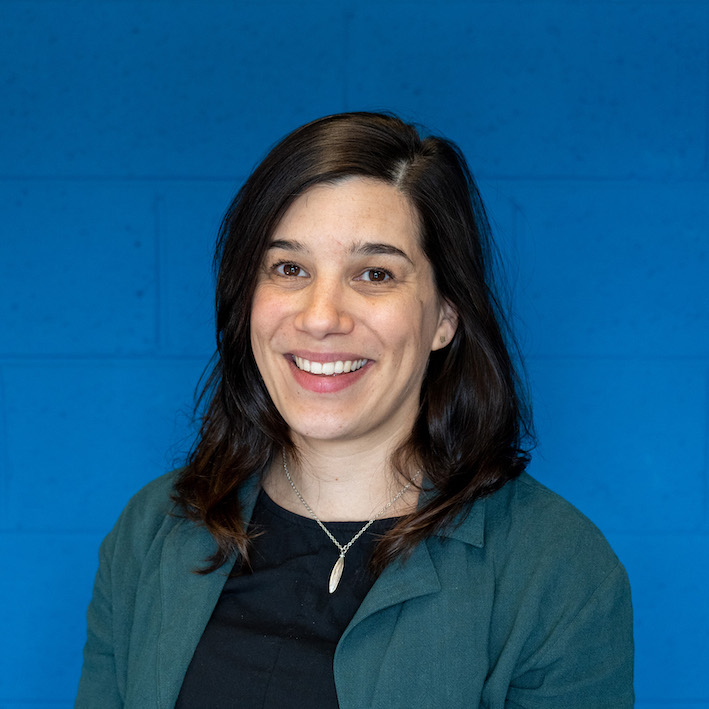
Originally from Luxembourg, Sandrine holds a Bachelor's degree in Ecotrophology and a Master's degree in Nutritional Sciences from the Justus-Liebig-University Giessen in Germany. She joined Creme Global, a data science and technology company, in 2010 and is heading up the Food & Nutrition department supporting global customers from the food and chemical industry and from government in the areas of data science, exposure and intake modelling and anything data-related.
Creme Global is a scientific modelling, data analytics & computing company committed to helping organisations make better decisions. We’re the data and technology partner to many of the biggest companies in the world.
We help organisations to understand the context of their data and our solutions bring our clients along the journey from data management to data visualisation, advanced analytics and predictive modelling.
Creme Global
4th Floor, The Design Tower
Trinity Technology & Enterprise Campus
Grand Canal Quay, Dublin 2, Ireland
D02 P956
Contact [email protected]
Massimo Pettoello-Mantovani MD, PhD
Work Package 6 Leader
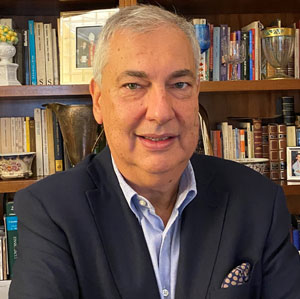
Dr. Pettoello-Mantovani graduated (magna cum laude) in Medicine in 1983 from the University of Rome, Italy. He received his PhD in Pediatrics from the Universities of Naples and Turin in 1988 and conducted his post-doctoral training in Microbiology and Clinical Mycology at the Catholic University of Sacred Hearth in Rome, Italy. Since 1989, he worked continually at the Albert Einstein College of Medicine (AECOM) of Yeshiva University in New York. He received his training in retrovirology at NIH, in the “Virus Biology Section” at Fort Dietrich, Maryland (Laboratory of Tumor Cell Biology, directed by Dr. Robert Gallo). His Research Projects have been supported by several grants from major research agencies, including the US National Institute of Health (NIH), Howard Hughes Medical Institute (USA), the Italian National Research Council (CNR), the Italian National Institute of Health (ISS) and the Italian Ministry of Health. In 1994 he was awarded with the US Class of "Outstanding Professor" and later received the USA Citizenship as "outstanding researcher” for his scientific achievements.
Dr. Pettoello-Mantovani's main research interests are in the fields of physiopathology of metabolism and nutrition and in Infectious Diseases. His primary research achievements are related to his studies on opportunistic infectious agents and their metabolic products (natural toxins and killer toxins). He gave a major contribution to the design of animal models (Thy/Liv SCID-hu mice) used to perform in vivo physiology and immunology studies and to test vaccines and novel drug therapies. He has been President of the Executive Committee of the “World Health Policy Forum”, an international Swiss based Foundation dedicated to the protection and improvement of human health. Finally, he developed and directed the Italian Doctorate Research Program "Food and Nutrition Science in Pediatrics" and since 2011 he is Diplomat Member of the Russian Academy of Medical Sciences (Scientific Center of Children Health), Moscow, Russia. Currently he is President of the European Pediatric Association, the Union of National European Pediatric Societies and Associations (EPA-UNEPSA), based in Berlin, Germany.
Dr. Erwan Engel
Work Package 7 Leader
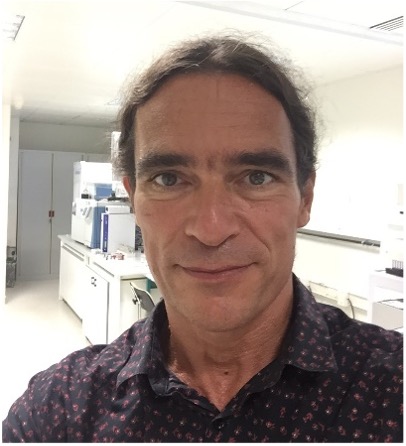
Erwan Engel is senior scientist at INRAE. He heads a research group near Clermont-Ferrand (MASS / QuaPA Research Unit). His research aims at enhancing both surveillance and control of human exposure to food chemical hazards. With the objective of strengthening the current food safety system, he coordinates the ANR SENTINEL Collaborative Research Project (CRP, 2020-2024) and the H2020 SAFFI Research and Innovation Action (RIA, 2020-2024). His research also aims at anticipating the chemical risks related to the coming transition towards sustainable food systems like the current massive transition towards organic food through the ANR SOMEAT (CRP, 2013-2017) or like the recent prospects offered by insect-based bioconversion through the INSECT4CITY French network he is chairing. He has also been expert for ANSES since 2018 in its food chemical risk assessment panel (CES ERCA) and in its working group dedicated to the next total diet study (GT EAT3).
Rallou Thomopoulos
Work Package 8 Leader
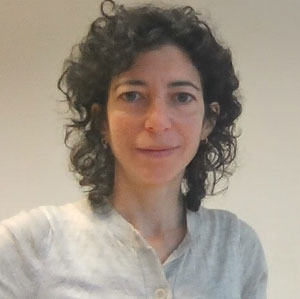
PhD in knowledge engineering by AgroParisTech, she is Senior Research Scientist at INRAE (French National Institute of Research for Agriculture, Food and the Environment) in the city of Montpellier. Her research themes are in collective and explainable decision, multi-actor and multi-criteria argumentation, opinion analysis and ethics, applied to agri-food chains.
